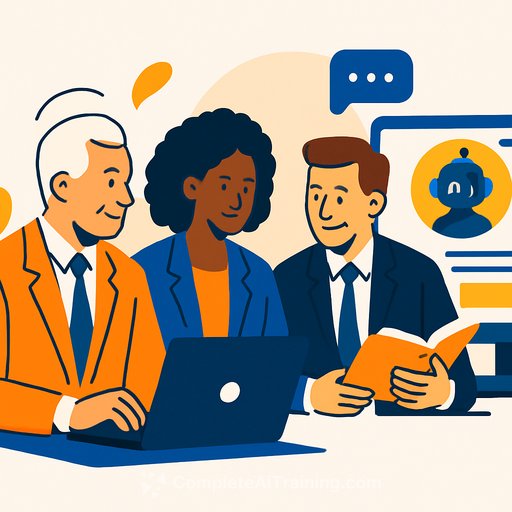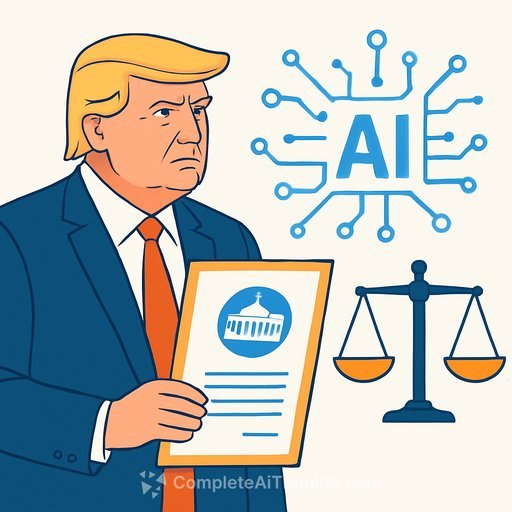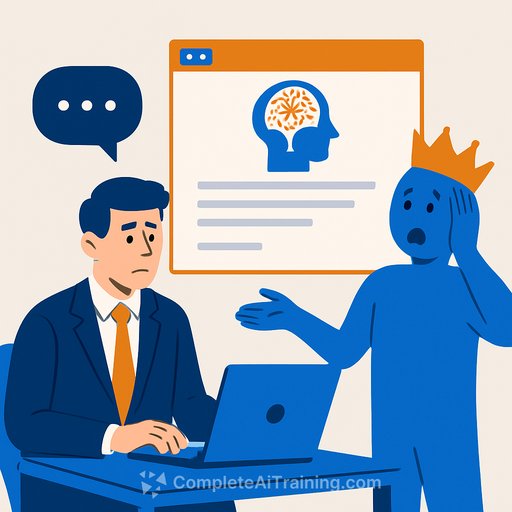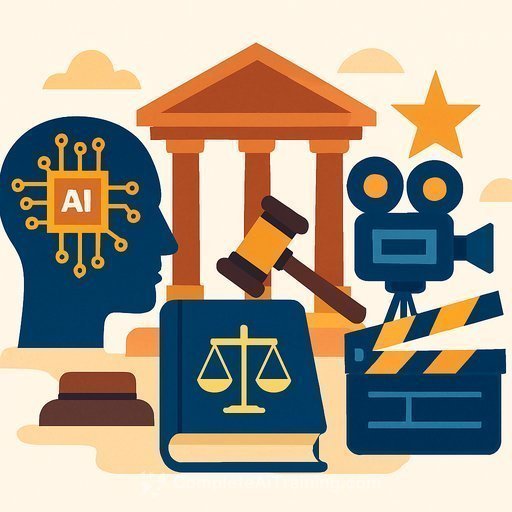Kennedys Partners With Spellbook To Safeguard Junior Lawyer Training In The AI Era
AI and automation are stripping out the entry-level tasks that trained generations of lawyers-first drafts, document review, quick research checks. Without a plan, junior lawyers risk losing the reps that build judgment.
Kennedys has announced a strategic collaboration with Spellbook to address that gap. The goal: a structured training programme that keeps practical learning alive as routine work shifts to software.
What's launching
Later this year, Kennedys will roll out a programme that blends its legal training expertise with Spellbook's drafting and analysis tools. The focus is simple: build lawyers who think deeply, use AI well, and make sound calls under pressure.
John Bruce, Senior Partner at Kennedys, said the firm sees a duty to ensure juniors develop real judgment alongside AI tools. The firm frames the initiative as investing in people while addressing efficiency gains and gaps created by automation.
How the programme works
- Simulated matters that mirror work juniors used to see in live files.
- AI-assisted drafting exercises that demand issue spotting and refinement, not passive acceptance.
- Structured feedback that replaces the informal coaching lost as workflows change.
Catherine Goodman, Chief Knowledge Officer at Kennedys and Honorary Professor in Law at Queen Mary University of London, said the team aligned quickly on the problem and the fix: use AI to accelerate learning while keeping standards high.
Scott Stevenson, CEO and co-founder of Spellbook, noted that embedding the tool in a formal learning environment helps juniors build confidence and leadership in this shift.
Why this matters for legal teams
Training can't rely on volume junior work anymore-because that work is shrinking. Firms need repeatable ways to build judgment, drafting skill, and risk prioritization without leaning on antiquated staffing models.
Regulators already expect tech competence. See the ABA Model Rule 1.1 (Comment 8) and the SRA's approach to continuing competence. Programmes like this help firms meet that bar while protecting client outcomes.
Who gets it first
Kennedys will pilot the programme across its US and UK offices. The firm plans to share insights with the wider profession, setting a template others can adapt.
Practical takeaways for partners and L&D
- Audit junior workflows: list tasks lost to automation and define how each skill will now be taught.
- Train "AI with judgment": require source checking, red-teaming, and decision memos with each AI draft.
- Build feedback loops: template rubrics, fast turnaround commentary, and escalation points.
- Track progression: measure issue spotting, drafting clarity, and client-readiness-not hours spent.
For associates and trainees
- Treat AI output as a starting point; your value is in clarity, risk ranking, and strategy.
- Document your reasoning. Partners need to see how you got there.
- Invest in prompt quality, citations, and verification workflows. Speed without rigor hurts trust.
The bottom line
This is a practical response to a structural shift. By recreating lost training reps-on purpose and at scale-Kennedys and Spellbook are giving juniors the exposure they need and clients the quality they expect.
If you're formalizing AI training paths for legal roles, see curated options by role at Complete AI Training.
Your membership also unlocks:






